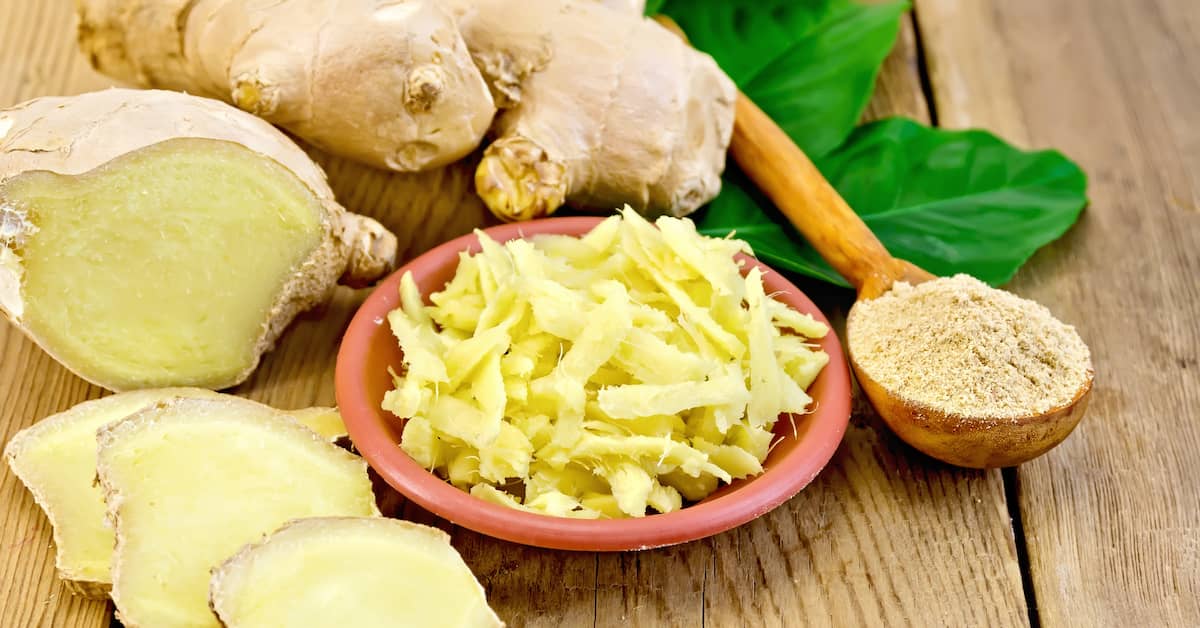
Helping An Older Brain Act Younger
In investigations of how ginger may help the brains of middle-aged people resist the problematic effects of aging, researchers have found that it can offset the slowdown in brain function that often accompanies the passing years. In one double-blind study, researchers gave women in their early fifties either a daily placebo (a non-active supplement) or 400mg or 800mg of a standardized ginger extract over a period of two months. Then, scientists assessed the women’s memories by giving them computerized tests to examine their working memory and cognitive abilites. They gave them these tests at the start of the study, after one month and then, again, at the end of the study after two months. The research team found that the women taking 800mg experienced improved attention span, memory speed and accuracy of their mental recall. Those taking 400mg also experienced memory benefits but they weren't as dramatic.1Fighting Off Threats To The Brain's Neurons
Many researchers now believe that since the natural chemicals in ginger can lower inflammation and act as powerful antioxidants, ginger is a potent tool that could be used to protect against cognitive issues that frequently crop up during our senior years. For instance, tests of how ginger affects the brain demonstrate it can increase the expression of nerve growth factor (NGF) which has been shown to improve memory and accelerate the development of neural networks crucial for learning new information.2 A study that involved researchers at Harvard and in Asia discovered that a compound in ginger called shogaol can limit damage to neurons by reducing what's called microgliosis and astrogliosis – inflammatory activity by immune cells in the brain that can impair memory.3 Along with that, lab tests in the Middle East show that shogaol may help protect neurons from the damaging effects of heavy metals-- a growing problem in today's polluted world.4 Meanwhile, other researchers have pointed out that the compounds in ginger can slow down or reverse a slew of the harmful immune activities that often lead to multiple sclerosis. Plus, these natural chemicals also block cellular signals that can bring on the neuronal destruction that occurs during this disease.5Protecting The Aging Brain
Studies around the world are demonstrating that as we get older, we all should add ginger to our meals to support brain health. These investigations show that ginger and its compounds can:- Help protect against Parkinson’s disease: A laboratory study in Korea reveals that shogaol can interact with immune cells in ways that preserve what are called dopaminergic neurons – neurons that produce and react to the neurotransmitter dopamine in the brain. These are the neurons that are destroyed or rendered non-functional during Parkinson’s disease.6
- Help prevent and treat Alzheimer’s and other forms of dementia: After reviewing the research into ginger’s brain benefits, Italian researchers conclude ginger “has proven to be a valuable candidate for the treatment of dementia, with evidence also supporting its use in prevention.” They point out that ginger has dozens of natural chemicals that could possibly help to improve the overall health of the brain.7
My Takeaway
As the research in ginger’s favor starts to pile up, I think it’s pretty clear that this spice can do a lot for the brain as well as the body. Clearly, those ancient healers were on to something good. According to some historians, after the Roman Empire fell, importation of ginger to Europe ceased for hundreds of years. But after trade routes to Asia were later re-established, ginger was one of the first products to be shipped westward. And I think it’s obvious why – this invaluable spice delights the palate and triggers so many positive physical and mental health benefits.- https://www.ncbi.nlm.nih.gov/pmc/articles/PMC3253463/
- https://www.ncbi.nlm.nih.gov/pmc/articles/PMC8971783/
- https://pubmed.ncbi.nlm.nih.gov/24796668/
- https://pubmed.ncbi.nlm.nih.gov/36173059/
- https://pubmed.ncbi.nlm.nih.gov/30243185/
- https://www.ncbi.nlm.nih.gov/pmc/articles/PMC4003157/
- https://www.ncbi.nlm.nih.gov/pmc/articles/PMC8470323/
